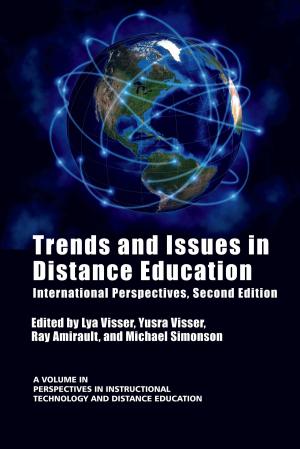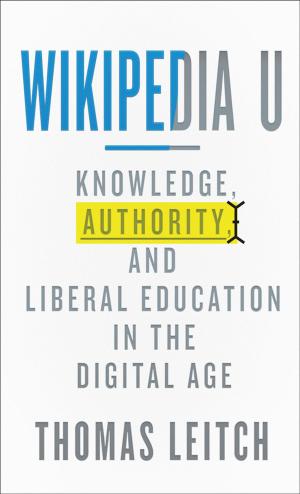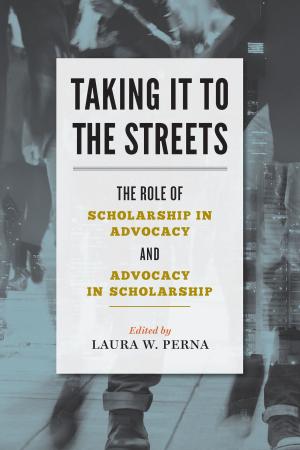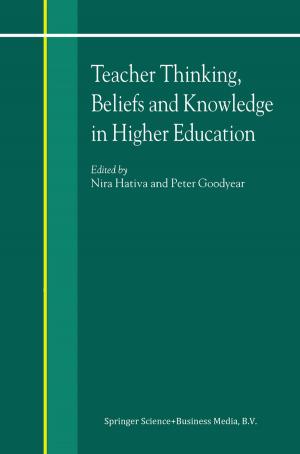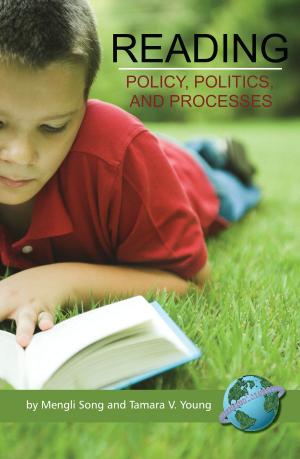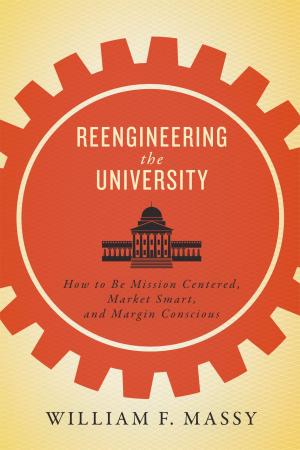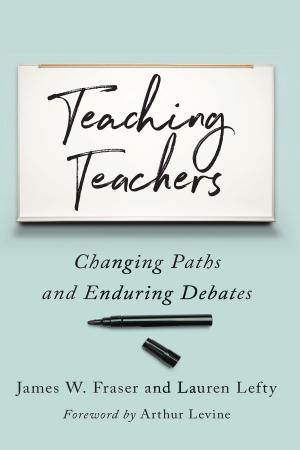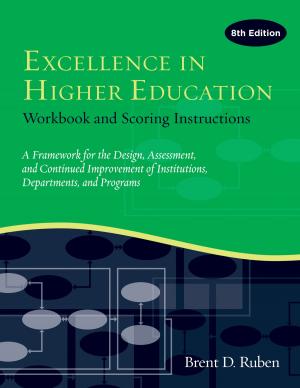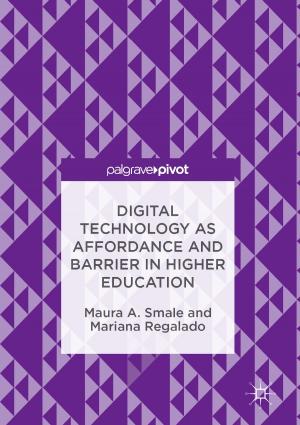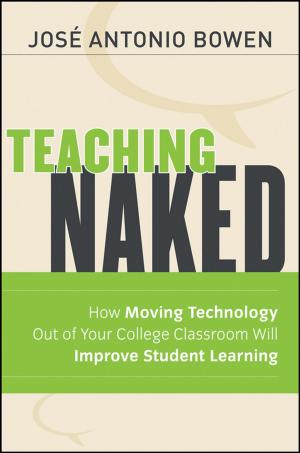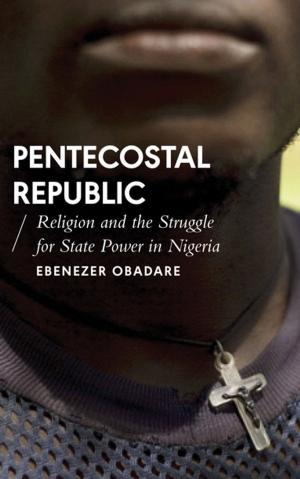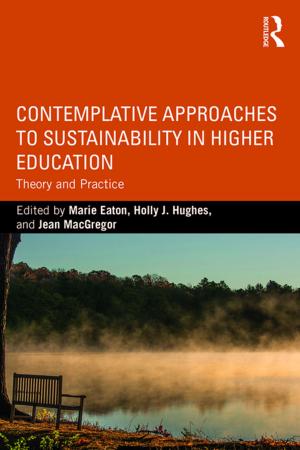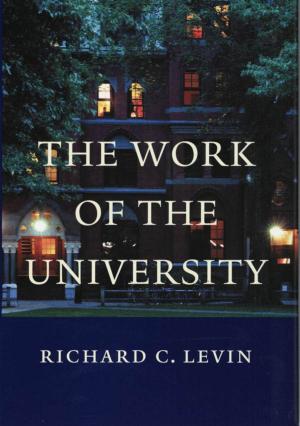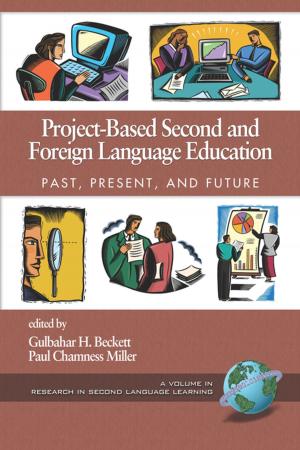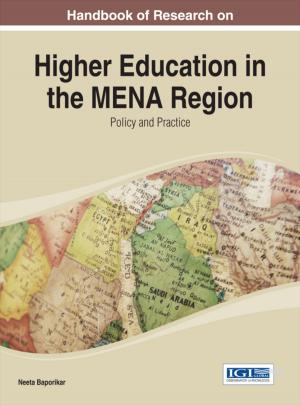Supporting Learning Online: "Policy and Change Processes in Higher Education" - A Doctoral Programme Module
Nonfiction, Reference & Language, Education & Teaching, Higher Education| Author: | Paul Trowler | ISBN: | 9781310844096 |
| Publisher: | Paul Trowler | Publication: | April 14, 2014 |
| Imprint: | Smashwords Edition | Language: | English |
| Author: | Paul Trowler |
| ISBN: | 9781310844096 |
| Publisher: | Paul Trowler |
| Publication: | April 14, 2014 |
| Imprint: | Smashwords Edition |
| Language: | English |
This little book gives an overview of my module on Policy and Change Processes in Higher Education, part of an entirely online PhD programme. Its aim is to give readers some feel for the content but especially the kinds of processes we engage in during that module. The module runs for 28 weeks, of which 15 are actively taught and the remaining 13 are devoted to research and writing the large assignment (which is, effectively, a journal article – participants often do subsequently publish their papers in academic journals). The detail of the module content and activities will change from year to year and from module to module, and of course tutors may change. Readers should though get a feel of what it is like to study for this PhD.
While it is easy to depict the structure and content of a syllabus, it is far harder to describe (and understand) the processes to facilitate learning that go on within it, and how they fit together. This can be particularly true of an online programme. Someone recently said that following an online programme deploying a suite of sometimes unfamiliar technologies sequentially was like “doing a jigsaw without having the picture on the box.” That problem is immediately recognisable: programme and module handbooks describe the syllabus and assessment details but don’t have space to depict online learning processes. This booklet helps to paint that picture on the box cover.
There are three audiences for this booklet:
1. Participants beginning the Higher Education Research, Evaluation and Enhancement (HEREE) PhD programme at Lancaster University’s Department of Educational Research. The booklet offers them a very detailed overview of one of the modules in one place, taking more time to discuss the ways in which learning processes are supported than the handbook can do.
2. Prospective participants who want to get a feel of the HEREE programme before they apply for and begin it, and want to understand in fuller detail the kinds of things they might be doing.
3. General readers, students, change agents, managers and academics who are interested in online education at doctoral level, particularly in the area of research into higher education.
This little book gives an overview of my module on Policy and Change Processes in Higher Education, part of an entirely online PhD programme. Its aim is to give readers some feel for the content but especially the kinds of processes we engage in during that module. The module runs for 28 weeks, of which 15 are actively taught and the remaining 13 are devoted to research and writing the large assignment (which is, effectively, a journal article – participants often do subsequently publish their papers in academic journals). The detail of the module content and activities will change from year to year and from module to module, and of course tutors may change. Readers should though get a feel of what it is like to study for this PhD.
While it is easy to depict the structure and content of a syllabus, it is far harder to describe (and understand) the processes to facilitate learning that go on within it, and how they fit together. This can be particularly true of an online programme. Someone recently said that following an online programme deploying a suite of sometimes unfamiliar technologies sequentially was like “doing a jigsaw without having the picture on the box.” That problem is immediately recognisable: programme and module handbooks describe the syllabus and assessment details but don’t have space to depict online learning processes. This booklet helps to paint that picture on the box cover.
There are three audiences for this booklet:
1. Participants beginning the Higher Education Research, Evaluation and Enhancement (HEREE) PhD programme at Lancaster University’s Department of Educational Research. The booklet offers them a very detailed overview of one of the modules in one place, taking more time to discuss the ways in which learning processes are supported than the handbook can do.
2. Prospective participants who want to get a feel of the HEREE programme before they apply for and begin it, and want to understand in fuller detail the kinds of things they might be doing.
3. General readers, students, change agents, managers and academics who are interested in online education at doctoral level, particularly in the area of research into higher education.

